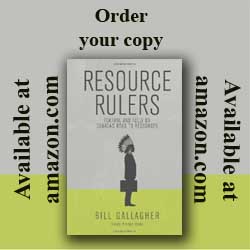Many commentators are saying that the courts are tightening up and that the native legal winning streak will be harder to maintain for future legal challenges.
They could be right but then again they could be wrong – big time!
Recently, I cautioned that natives need to be more judicious in some of the cases that they are advancing and have warned them of over-reaching (recently they incurred three losses in a row – in my view – all in legal actions that may not have furthered their social justice causes).
Still they nevertheless also won two significant procedural wins at the appellate court level: ‘cumulative impacts’ in Alberta (#180) and ‘Rupert’s Land’ in Yukon (#181). Both these key issues will now have new trials: the first potentially impacting the oilsands; the second potentially impacting 40% of Canada’s land mass. Stay tuned!
So what makes one think that natives might hit the 200 mark? A hint comes from a case decided this week on Vancouver Island having to do with the Douglas Treaties. Again the native-side did not prevail because they failed to reciprocate by discharging their duty-to-consult obligations (being as it is a two-way street) and they were properly called-out by the court for their consultation intransigence.
Likewise the British Columbia government was called-out for its narrow legal-mindedness. The following paragraph from the judgment appears at the halfway point – and took me (a close reader of rulings) completely by surprise:
d) Did the Provincial Crown have a Duty to Consult in respect of the Kwakiutl First Nation Traditional Territory beyond the KFN Treaty Lands?
[123] The Provincial Crown concedes that it had a duty to consult with respect to the treaty rights but denies this duty extended to the whole KFN Traditional Territory. (excerpt Chartrand v The District Manager 2013 BCSC 1068) (author’s underlining)
The fact that this assertion appears in a Supreme Court ruling in mid-2013 tells us something about the narrow legal mindset emanating from BC government lawyers.
Needless to say the court made short work of it:
[147] All three elements that give rise to a duty to consult in respect of the KFN Traditional Territory were present. Accordingly the Provincial Crown had a duty to consult with the KFN in respect of the Decisions and their potential for adverse impact on the KFN Traditional Territory and its treaty rights. (ibid)
No wonder the judge told BC to bear its own court costs, along with making other recommendations in the pursuit of furthering real reconciliation down the road:
[208] Although this declaration does not provide the relief the Kwakiutl First Nation advocated for in terms of their quest for a resolution of their Aboriginal land claims, neither does it ignore the problem. I encourage and challenge both the Federal Crown and the Provincial Crown to engage the KFN regarding the KFN’s asserted and treaty rights, titles and interests with a view to the negotiation of a treaty without any further litigation, expense or delay. (ibid) (author’s underlining)
While the province did adequately consult the KFN in this instance – even with this outcome – the native side did not leave court empty-handed. More over, if the same type of provincial government narrow legal-mindedness permeates the other native legal challenges presently before the courts, then hitting 200 native legal wins in the Canadian resources sector will soon be a litigation track-record certainty. And it’s no wonder then that pipelines, dams, transmission lines, woodlots, mines, run-of-river hydro projects are all heading into the legal blender in BC.

